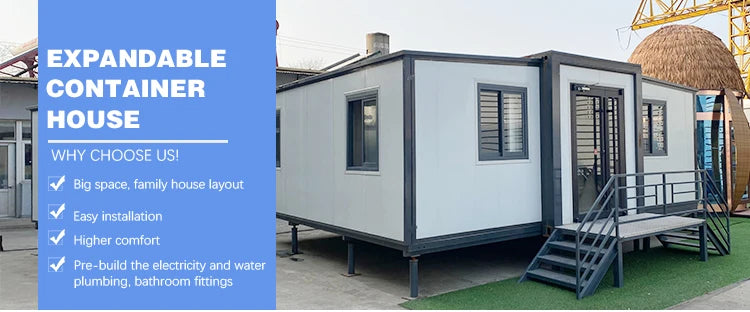Advantages of Foldable Model
1. Portability
Foldable houses are designed to be easily transportable, making them ideal for people who want or need a mobile living space. This can be especially useful for those who need temporary housing in remote locations, or even people who want to downsize and have a nomadic lifestyle.
2. Space Efficiency
These homes are built to maximize space in a compact form, and they can unfold or expand to provide more room when needed. When not in use, they can be collapsed into a smaller footprint, which is excellent for people living in areas with limited space or for those who need to store them in a compact way.
3. Cost-Effective
The construction and materials for foldable homes can often be less expensive than traditional housing. Since they can be prefabricated, there may also be less labor and construction time involved, reducing overall costs.
4. Eco-Friendly
Many foldable homes are built using sustainable materials, which makes them more environmentally friendly than traditional homes. Additionally, their portability means they can be relocated without the need to clear land, potentially reducing environmental disruption.
5. Quick Setup and Installation
Compared to conventional housing, foldable homes can be set up much faster. Once transported to the desired location, they can often be unfolded and assembled in a matter of hours or days, rather than weeks or months.
6. Disaster Relief
In the event of a natural disaster or emergency, foldable homes can be quickly deployed to provide temporary housing for displaced individuals. Their ease of transport and quick setup make them an excellent option for disaster relief.
7. Flexibility in Use
These homes can be used for a variety of purposes. They can serve as vacation homes, emergency shelters, remote offices, or even tiny homes for long-term living. Their adaptability means they can fit into various scenarios depending on needs.
8. Reduced Carbon Footprint
Because of their compact and efficient design, foldable homes can be more energy-efficient than larger, traditional homes. Many are also designed to incorporate solar panels or other renewable energy sources, reducing reliance on external power grids.
9. Innovation and Customization
Many foldable homes come with modern features and the ability to customize the layout and design. These homes often integrate smart home technology, making them not just efficient but also high-tech.
10. Urban and Rural Suitability
Whether you're looking to set up in a crowded urban space or a remote rural area, foldable homes can adapt to both environments. They take up minimal space, making them perfect for urban living, while their portability and easy setup make them ideal for rural or off-grid living.







